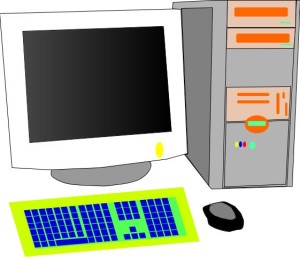 (Update: The live call is over, but the recording is available at the links below. Click the link to grab your free recording!)
(Update: The live call is over, but the recording is available at the links below. Click the link to grab your free recording!)
One of my core business philosophies is to test and revise. I try something I think will work, measure how well it works and revise my plan after that. I did the same with a full year of local, in-person networking and decided it wasn’t worth it and I focused on the internet to build my business.
Another one of my core philosophies is to always be learning. I tend to change my mind a lot because I’m dedicated to truth, not consistency. What I’ve recently learned is that I didn’t network nearly as well as I thought I did.
During the course of my networking year, I met over 200 people (keeping track was part of my measurement process). I sent every one a personalized follow up email, met a few for coffee and offered some of my free material to people who seemed interested. I’m outgoing and curious, so conversation comes naturally to me and I read a lot of “how to network” articles. I thought I was doing great because I was doing so much more than almost everyone I met. Of the 200+ people I met, only a few followed up with me and only a few even acknowledged my personalized email.
At the end of that year, I decided that networking wasn’t worth it because although it was great fun it wasn’t generating business for me. I only generated a small amount of business from my efforts, and when you consider that each of the 2-5 events per month I attended was about a 5 hour investment the math just didn’t work out.
Fast forward to this year, and what I’ve learned is that I didn’t have the right knowledge or strategy going into my networking efforts. To fix this for myself and help you learn as well, I’ve asked sales and networking expert Don Talbert to teach networking skills for my community on a free teleseminar. Don is the founder of the Centurion Group, and after he built his own successful business using networking he began to teach this skill to others. I’ve had many interactions with him both in groups and one-on-one conversations and he really knows his stuff! I’ve learned so much just getting ready for this call that I cannot wait to see what he teaches on the call!
If you’ve tried local networking but haven’t found success, please join me on this call – you’ll leave with strategies and tactics you can use right away. As a bonus, he’ll also be sharing the best way to make sure you are the most disliked person in the room. I’m a little nervous about this one – I hope I didn’t do whatever this is!






